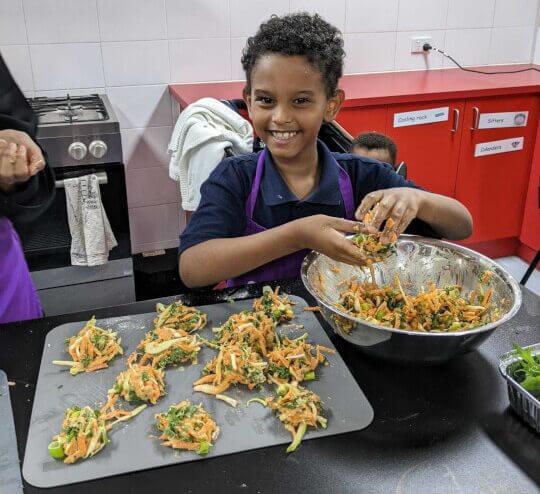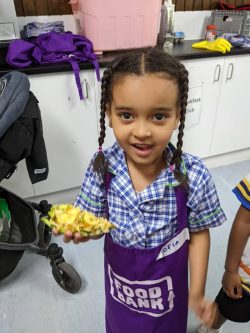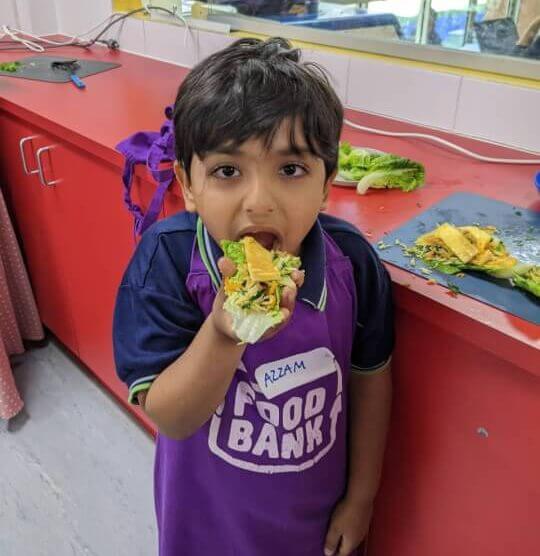Cooking classes unite the community
Debney Meadows Primary School is a metropolitan school located in the inner-Melbourne suburb of Flemington with 94 students enrolled. The school prides itself on innovative teaching practices catering to the individual learning needs of every child, and aims to foster and balance the intellectual, physical, cultural and social development of its students.
Debney Meadows is always looking for innovative ways to bring the school community closer together, so when they were invited to join Foodbank Victoria’s Schools Breakfast Clubs Programs Cooking Classes, they were quick to sign up.
The Cooking Class program runs for four weeks, bringing families and students together to learn about cooking with new ingredients as a family.
Debney Meadows Primary School is located close to the Flemington Housing Estate, with many multicultural families attending the school. The cooking classes provided an opportunity for families to spend time with their children within the school grounds, and even improved school attendance in some cases.
Marwa Zakzouk, a parent Council Member, said “The cooking classes have allowed these families to learn about new ingredients and food from other cultures, and how to cook them. It’s important for these kids to learn how to cook with their parents, and to be trusted in the kitchen.”
What happens at the cooking classes?
The Foodbank team packs up all the ingredients into the Cooking Class van and heads to the school to lead the cooking classes. Each school has a different space to host the classes, with some classes being held in a staff room with no cooking equipment at all. This helps to ensure schools have no barriers to participate in terms of infrastructure and resources.
Debney Meadows Primary School luckily has a well-equipped kitchen space that was perfect for these classes. The families involved spent four afternoons gathered around the kitchen benches ready to cook.
Each week a group of families, one parent and one or two students, learnt how to cook a new recipe. The classes encouraged the kids to learn about using cooking equipment safely, and they loved having the opportunity to chop vegetables while their parents are watching closely.
Education at its best!
The Cooking Classes provide a hands-on way to learn important life skills, that some students do not have the opportunity to learn at home. The families participating not only learn cooking skills, they also learn about nutrition and safe food handling.
One of the kids’ favourite part of the program is the white bread handling test. The kids test three pieces of bread. One is handled with unwashed hands, one is handled after washing hands and the other is handled with clean tongs. Each piece of bread is then placed into a bag and left for the next week. The students then review the bread at the next class, assessing the mould levels. There are lots of gasps when the kids see the difference in mould level between the dirty hands and the clean tongs! Reinforcing the importance of hand hygiene when cooking and preparing meals.
These hands-on practical teaching methods, along with pictorial recipes (visual recipe to cater for diversity in language and literacy) resonate with the families and children alike, especially as 89 per cent of Debney Meadows Primary School school families have English as an additional language.
The kids love the food!
The recipes and ingredients used at the Cooking Classes are often new to the participants. This adds new weekly meals that the families can continue to cook, and food that the kids love to eat. The classes have shown that if they kids are involved in the cooking, they tend to love the food they make and be more adventurous with trying new things, especially the veggie-packed recipes
 Contact us
Contact us Log in
Log in


